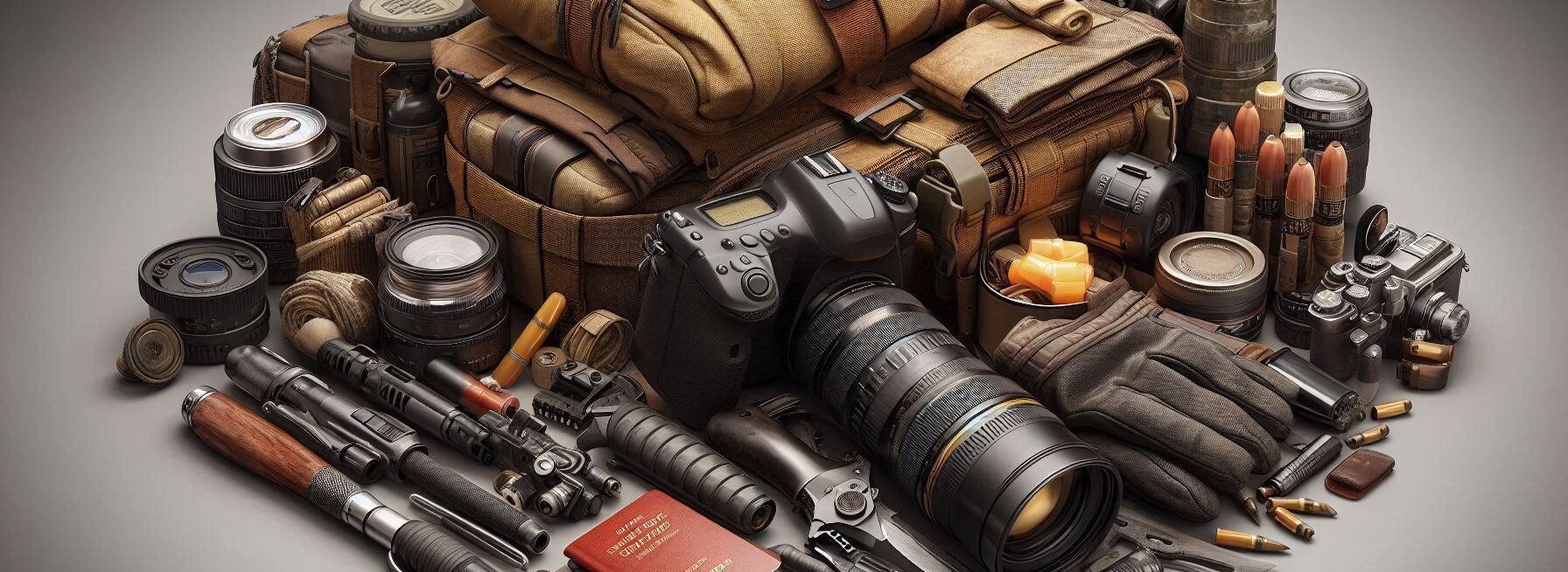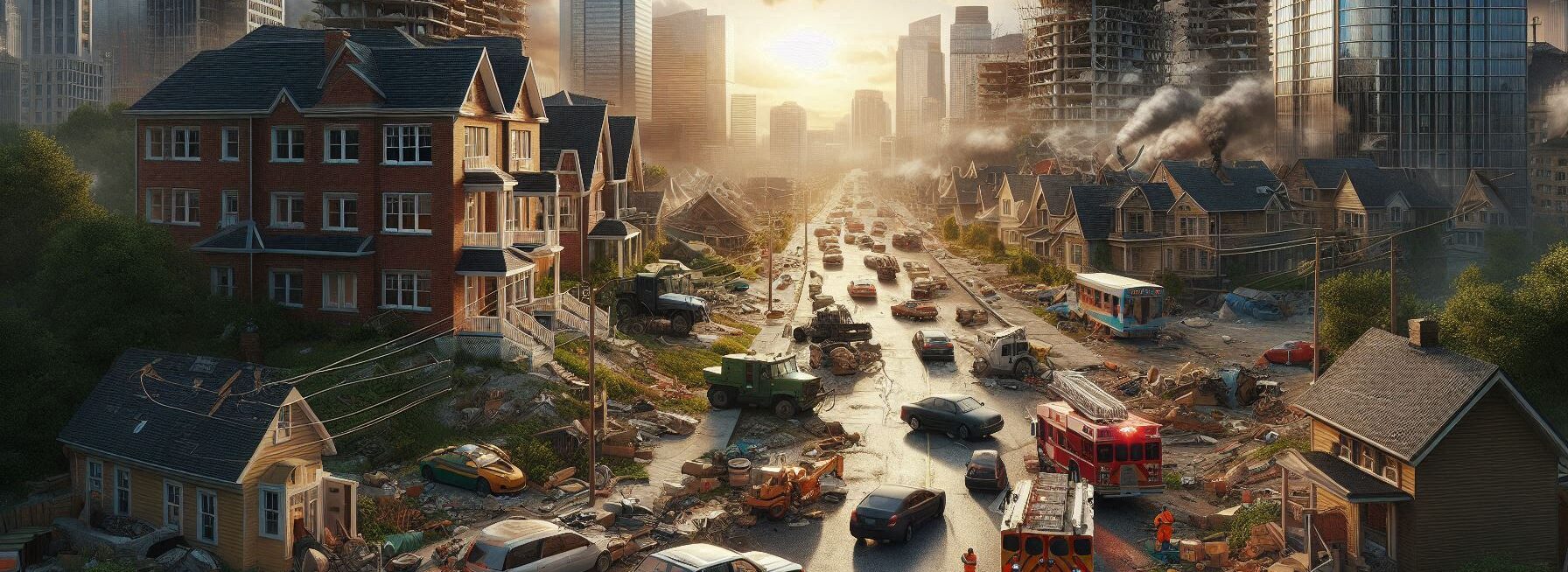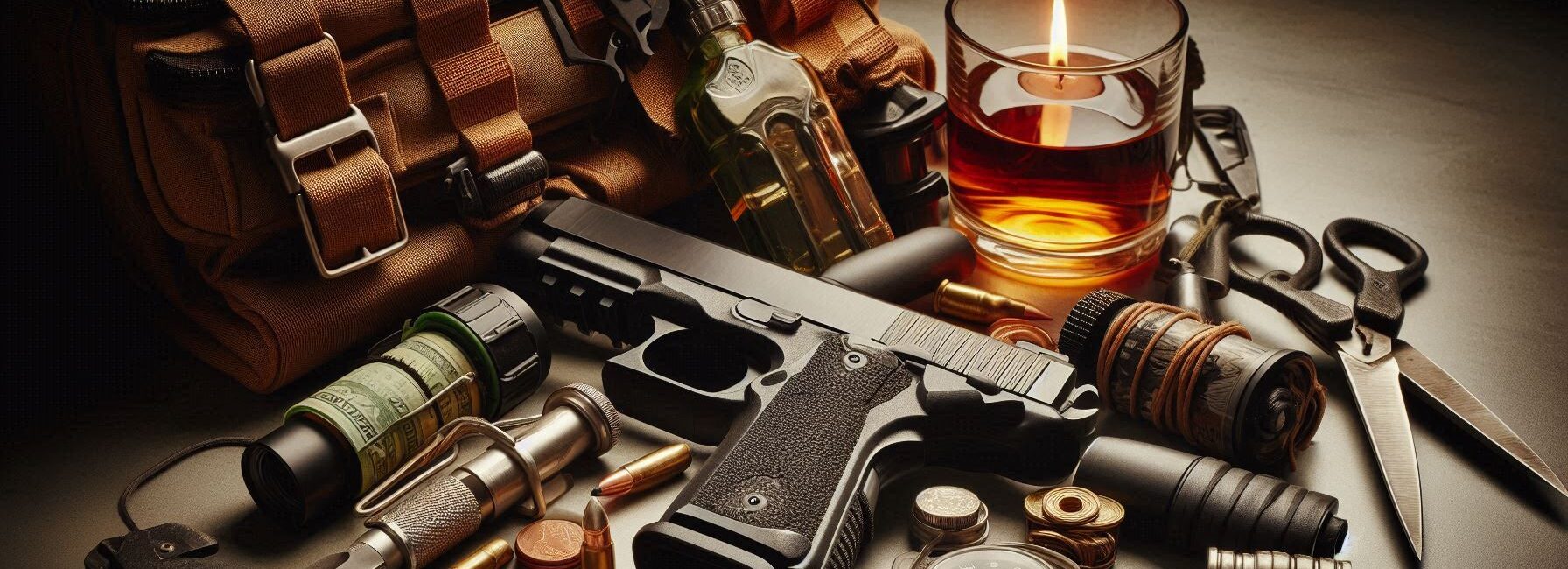Last Updated on November 2, 2025 by Kevin Collier
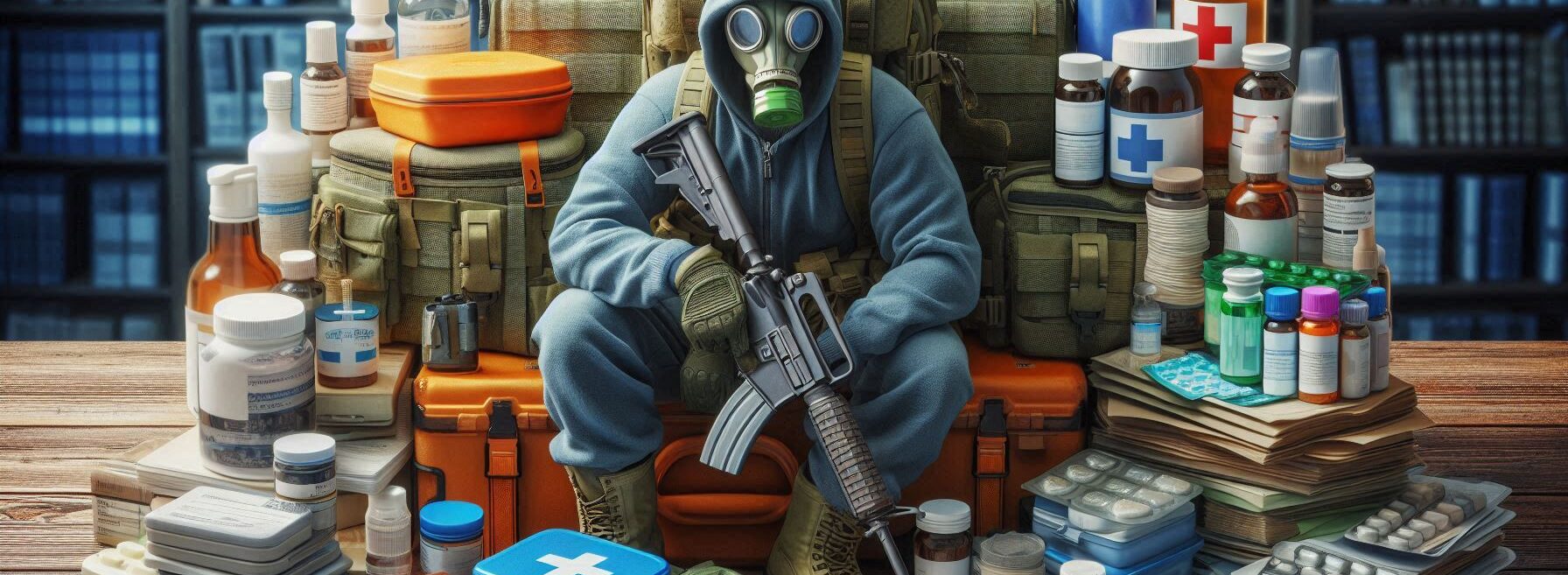
Top Takeaways and Key Concepts
- Stock a first aid kit with bandages, gauze, antiseptic wipes, and pain relievers.
- Include prescription medications, allergy medicines, and keep track of expiration dates.
- Add specialty items like insect repellent, sunblock, burn gel, and scissors.
- Store supplies in a cool, dry, organized container accessible to all household members.
- Learn basic first aid skills and review your kit regularly to stay prepared.
So, you’re jumping into prepping. Nice! You’ll have more band-aids than a drugstore soon. Seriously, though, this is a bit more than just tossing some aspirin in a shoebox.
When it comes to first aid, you want to be smart about what you get. Think of it like building a mini hospital. First, start with the basics: band-aids, gauze, and antiseptic wipes. You’ll need them for all those little bumps and scrapes. And let’s be honest, kids (and some adults) are clumsy.
Please Note: This post may contain affiliate links. If you click one of them, we may receive a commission at no extra cost to you. As an Amazon Associate, I earn from qualifying purchases.
Don’t forget about meds. It’s good to have some pain relievers like ibuprofen or acetaminophen. They can help when a headache strikes or when Aunt Edna’s casserole competes with your taste buds.
What else? How about some allergy meds? You never know when pollen, dust, or Uncle Joe’s cat might make you sneeze. And if you have special needs or family members with allergies, be sure to include their meds too.
A thermometer is a smart addition. It’s super handy for checking fevers. If things get rough, you want to know what’s going on.
Think about emergency supplies, too. A good pair of scissors, tweezers, or a small flashlight can make a big difference. You might need to cut tape or pull out splinters.
Also, grab some stretchy bandages. They’re wonderful for wrapping up an ankle or wrist. Who knows, maybe you’ll have an impromptu game of tag.
Keep your kit organized. A well-stocked bag is like a friend who always has your back. Check it often and swap out things that expire. That way, you won’t be stuck in an emergency with bad supplies.
Lastly, learn some first aid basics. It’s great to have the stuff, but knowing how to use it is magic. There are lots of classes online, and they can turn you into a mini medic. You’ll feel more confident when something happens.
*** Shop for Survival Gear - Tools - Kits ***
Survival Gear - Bags and Backpacks - Knives - Boots/Footwear - Communication
Outdoor Cooking - Gloves - Hydration - Dry Boxes - Water Filtration Systems
Tents - Sleeping Bags - First Aid Kits - Multi-Tools - Flashlights - Fire Starters
Navigation - Survival Food - Night Vision - Headlamps - Stun Guns - Binoculars
So get ready for anything, even if it’s just Aunt Edna’s casserole. You’ll be set to handle whatever comes your way!
1. Understanding Your Basic Needs: What’s Essential?
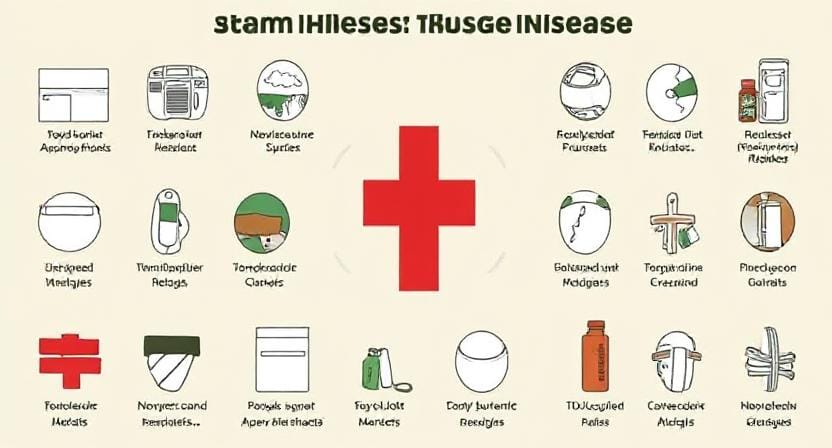
Let's start by talking about what you really need in your survival medicine kit. We don't want you to have to predict what will be valuable later; we want you to have useful things that will help you in a variety of scenarios.
You'll definitely want to have over-the-counter medicines like pain relievers (ibuprofen or acetaminophen), antihistamines (for those surprise allergy attacks), and cold medicines (because who doesn't become sick at the worst possible time?).
I remember going camping with my friend Dave, who claimed he was immune to allergies. But then he sneezed all night like a walrus with a sinus infection. Always bring allergy medicine with you!
And don't forget about therapies that go on the skin! You should have antiseptic wipes, burn cream, and antibiotic ointment in your pack since nothing says “I'm ready” like being able to treat little wounds without having to use duct tape. Still, I think duct tape is the answer to virtually anything.
2. The Basics of Putting Together Your First Aid Kit
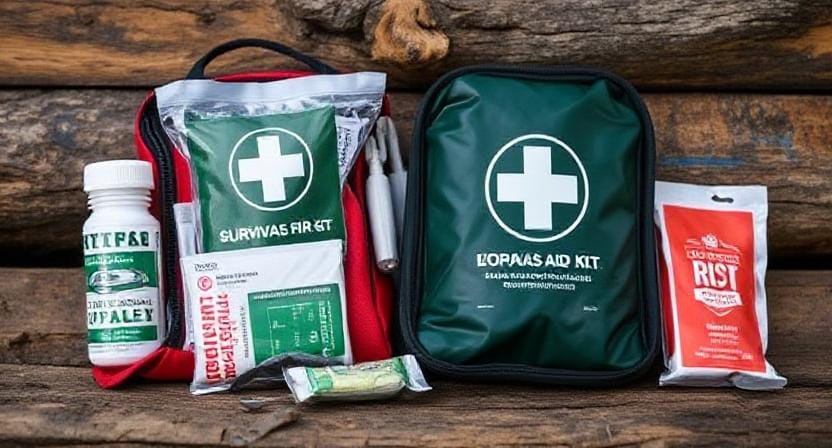
Now that we've gone over the essentials, let's talk about how to make a real first aid kit that would impress even the most experienced Boy Scout leader.
Begin with a strong container, preferably one that is waterproof because rain has a bad way of damaging perfectly nice materials.
Put sticky bandages of all sizes in your pack. You never know when someone will need one for that “tiny” paper cut they say is life-threatening.
For bigger wounds, gauze pads and medical tape are also very important. Trust me, no one wants blood trickling down their arm while they try to bake marshmallows.
To be honest, I had a friend who thought it would be humorous to juggle fire sticks when we were camping.
The short version is that fire sticks and being clumsy mean you need a lot of gauze. So make sure you have enough supplies on hand for anything that can happen.
3. Don't Forget Your Prescription Drugs!
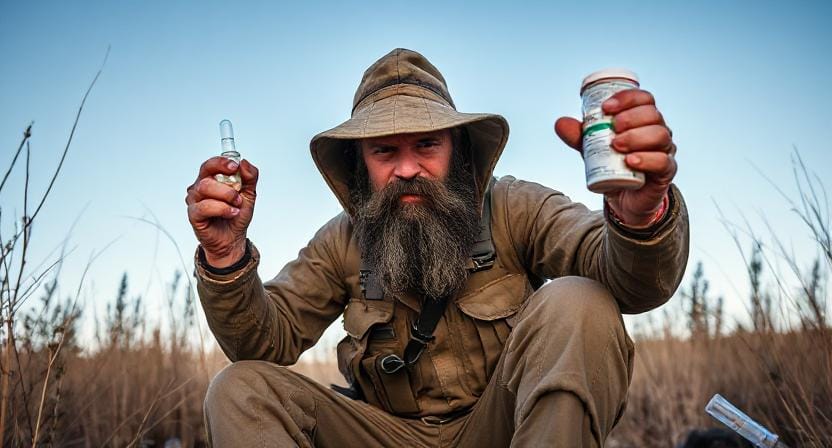
If you or anybody in your family uses prescription drugs on a daily basis, it's important to not only have enough of them, but also to keep track of when they expire.
It's the worst when you need your heart medicine and find out it expired three months ago because someone forgot it was next to last year's Halloween sweets.
Talk to your doctor about getting extra medications if you can, or at least make sure you have plenty on hand for emergencies.
Also, while we're on the subject, think about writing down critical medical information and having it in your first aid kit where you can easily get to it.
By the way, if someone ever asks you why you have enough medicine for an army instead of just yourself, you can always claim that you're being ready for “just-in-case” situations like sudden visits from long-lost relatives or family reunions that happen out of the blue!
4. Specialty Items: For Those Special Times
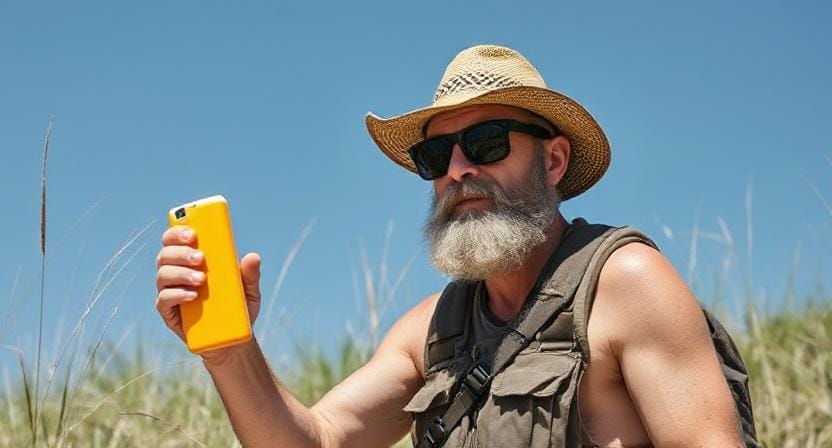
Okay, now let's go fancy! There may also be particular products that are worth adding to your survival store, depending on your personal needs or interests (yes, fishing is a pastime). For instance:
– Insect repellent: If you plan to go outside and swat insects while sweating a lot, this will help a lot.
– Sunblock: No one wants their skin to look like a lobster after spending too much time outside.
– Burn gel: Great to have on hand if you unintentionally pull a hot pot off the campfire without thinking.
In that case… Did I tell you that my brother once thought his hand was an oven mitt? It wasn't pretty, but hey! At least we had burn gel ready!
5. Putting Your Supplies Away The Right Way
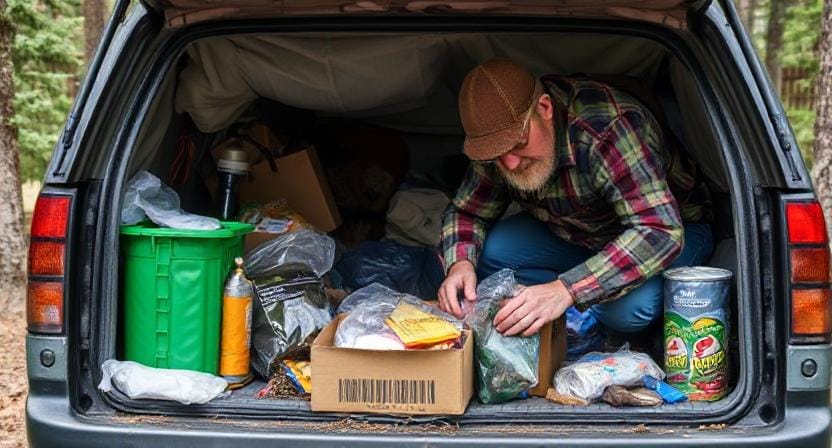
Lastly, and this is really important, how do you keep all of these great supplies? You could just throw stuff into random drawers around the house, like a messy scavenger hunt, but it wouldn't be any fun.
Instead, choose certain rooms or containers just for storing survival medicine so that you know precisely where everything is when calamity comes or when Aunt Edna shows up unannounced again.
Keep kits cool and dry, out of direct sunlight. Heat can make drugs less effective faster than Uncle Joe can recount embarrassing anecdotes about childhood mistakes during holiday dinners!
Also, make sure that everyone in your house knows where these supplies are. If someone is looking for them in a panic, they might end up yelling, “Where's my emergency ibuprofen?” while searching through every closet until they give up and decide that eating ice cream will solve their problems instead (not recommended).
Conclusion
Look at you! You’ve got a great plan for stocking up on survival medicine and first aid supplies. That’s pretty awesome!
With these tips, you can make sure you’re ready for whatever life throws your way. Personalize it, too. Add what’s special for you and your family. Maybe a favorite candy bar or something?
Confidence goes a long way. Being prepared helps you feel strong, like a superhero. When something unexpected happens, you’ll be ready. You won’t be scrambling for a band-aid or pain reliever.
And snacks—oh, don’t forget those! Snacks can make a dull moment so much brighter. Whether it’s some trail mix or granola bars, having treats on hand can really boost spirits.
So, head out and gather your supplies! Make it fun. Maybe turn it into a little project. You’ll enjoy the process and feel proud of what you’ve built.
Frequently Asked Questions
What should be included in a basic survival first aid kit?
A proper kit should include bandages, gauze, antiseptic wipes, pain relievers, tape, and common wound-care items for minor injuries.
Should prescription medications be stockpiled?
Yes, keep an extra supply of essential prescription medications and track expiration dates to maintain safe and effective use.
Are allergy medicines important to include?
Allergy medicines are valuable because allergies can occur unexpectedly, and antihistamines can provide fast symptom relief.
What specialty items should be considered?
Items like insect repellent, sunblock, burn gel, and scissors add versatility and can address issues that regular bandages alone cannot.
How should survival medicine supplies be stored?
Store all supplies in a cool, dry, organized container that household members can easily access in an emergency.
How often should first aid kits be checked?
Review your kit regularly, rotating out expired items so everything remains safe, effective, and ready for immediate use.
Do basic first aid skills matter if you already have supplies?
Yes, knowing how to use the supplies is just as important as owning them, so basic first aid training is strongly recommended.
Suggested Resources:
Survival Medicine Handbook
https://www.amazon.com/Survival-Medicine-Handbook-Preparedness-Pandemic/dp/1935487370
First Aid Kit Essentials
https://www.redcross.org/get-help/how-to-prepare-for-emergencies/survival-kit-supplies.html
How To Build a First Aid Kit
https://www.ready.gov/first-aid-kit

Kevin Collier is a seasoned survivalist and expert in prepping and homesteading, contributing to WiseSurvive.com. With a deep-rooted passion for self-sufficiency and outdoor survival skills, Kevin shares practical advice, strategies, and resources to help individuals prepare for any challenge. His informative articles cover a range of topics, from essential survival techniques to sustainable living practices, empowering readers to thrive in any situation. Whether you're a novice or a seasoned prepper, Kevin's insights will inspire you to take charge of your readiness and build resilience for the future.

